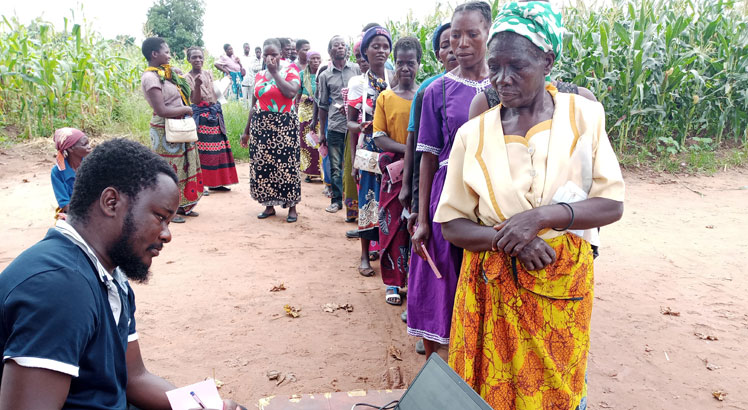Social cash transfer: Abackbone for the elderly
They are weak and living in a dilapidated grass-thatched house on the outskirts of Zomba City.
Genazio Chinangwa, 85, and Teleza Stanly, 65, are just a sample of the elderly fighting for their lives even when their muscles have less to offer.

With difficulties in walking and hearing, the two never leave each other. They are either seated on their dusty veranda or are in their field trying to prepare land for the next growing season or caring for their grown crops.
Of 11 children they bore, seven are alive but unable to care for them due to poverty. According to Chinangwa, some of them look up to them for support even when they are married.
“We are a starving family and have no proper support. This is the reason even at our old age, we still go to the field so that we have food for the rest of the family,” he says.
However, Chinangwa says despite the numerous challenges facing the family, they find relief in the social cash transfer programme which they have been beneficiaries since its inception in the district in 2015.
Through the programme, the family is able to use the money to buy food, fertiliser and pay school fees for their grandchildren.
Sometimes when their bodies are weak, they use the same money to employ labourers to help in their farm.
This is not the only benefit they have from the programme. Chinangwa has also been saving and buying iron sheets for their house.
“Since 2015, I have been saving some little money and I have since bought 14 iron sheets. I need 32 and I am hopeful that one day, I will roof my house with iron sheets,” he believes.
Chinangwa has since hailed government for introducing the social cash transfer programme which is one of the many social protection and safety net programmes.
He says without it, life would have been a total mess and that at his age, he would have died of stress and poor health.
“How I wish this was a special package for the elderly and vulnerable groups. In addition, government should consider increasing the amount as the current value does not match with the cost of living,” Chinangwa suggests.
Government of Malawi, with financial support from various partners, including European Unionn (EU), introduced the social cash transfer programme as one of the social resilience and protection programmes targeting the most vulnerable Malawians.
The idea is to ease sufferings of the less privileged through the provisional of monetary support to selected households.
In Zomba District, about 15 556 households, including the elderly, are benefiting from the programme.
According to Zomba principal social welfare officer Paul Simfukwe, out of the beneficiaries, 7 002 are the elderly.
He describes the programme as pivotal in providing an opportunity to the vulnerable to rise above their statuses and start contributing to the economy of the country.
Simfukwe says the programme was initially designed to aid ultra-poor population and graduate them to a much better level where they could stand on their own.
“Much as we talk about people benefiting from the programme, this is not a lifetime programme, people need to graduate. However we are failing to graduate beneficiries due to the absence of sustainable initiatives that could take up those graduation pathways,” he says.
On increasing the number of beneficisries for the district, Simfukwe said the figure may increase during re-targeting by two percent.
“Currently, the target beneficiaries is 10 percent of the total household population and after re-targeting, the percentage will increase by two percent, making it 12,” he said.
Simfukwe agreed with Chinangwa that the amount given to beneficiaries was too little to correspond with the economic demands.
Malawi Network of Eldery Persons (Manepo) country director Andrew Kavala says much as the organisation appreciates that some beneficiaries are the elderly, they would have loved if government rolled out a scheme purely for them.
He says people like Chinangwa should not be allowed to sweat and work with their weak bodies.
“Elderly issues must be looked into critically so that we do not expose them to issues like poor health. It is time government took a bold step and improved the welfare of the elderly,” says Kavala.
During their visit to the country, KFW, a German development bank through which EU channels resources for the programme in Zomba, hailed the country for the successful progress made so far.
The bank’s head of health, education and social protection division for Southern Africa, Marlis Sieburger, says she is impressed that those benefiting are the poor who live in remote areas.
She says including the eldery in the programme was the a much exciting thing about the programme.
Sieburger promised to lobby for more funding and also increase the number of the elderly benefiting from the programme.
“I am impressed to see the elderly being considered. They are weak and cannot engage themselves in any hard labour. I pray that the programme continues so that more and more benefit,” she said.
Social cash transfer programme was first introduced as a pilot in 2006 in Mchinji. After a successful implementation, it spread out to other districts.





